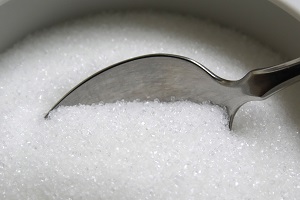Do Artificial Sweeteners Affect Teeth?
Do you have a sweet tooth but need to hold back on the sugar? Artificial sweetener is a great alternative for you. With sugar-free gum, diet sodas, and other artificially-sweetened food and beverages available practically anywhere, you would think that you are doing your teeth a favor by choosing them over their sugar-filled counterparts. However, like most things in life, consuming sugarless substitutes comes with its own set of health consequences. In some cases, these can be detrimental to your smile.
Sugar vs. Artificial Sweeteners
Sugar
When you think about the logic behind consuming artificial sweeteners in place of sugar, it makes sense. After all, certain types of bacteria feed on sugar. Thus, exposing your teeth to lots of sugar can lead to tooth decay. The bacteria break down the sugar, releasing acids that weaken and dissolve the tooth enamel and creating holes called cavities. These holes can grow deeper and spread down the tooth pulp. Consuming large amounts of sugary food and drinks is not good for your teeth. Thus, to keep their teeth healthy, many people opt for artificial sweeteners when it comes to indulging in their favorite desserts.
Artificial Sweeteners
Unfortunately, sugar substitutes can also cause damage to tooth enamel. Studies have shown that sports drinks and diet sodas with artificial sweeteners can cause just as much damage to the teeth as real sugar. The main issue here is that artificial sweeteners do not protect your teeth from sugar damage, which is caused by acid. Artificial sweeteners might not fuel bacteria in the mouth to produce the same acid that sugar does, but the former contains potentially harmful acidic ingredients. Researchers found that phosphoric acid and citric acid play huge roles in tooth erosion. These acids are usually found in colas and candies for added tanginess.
Using Artificial Sweeteners
Indeed, artificial sweeteners are not helpful when it comes to protecting teeth from cavities. However, there are some possible health benefits to it. For one, it can help with weight control. They are non-nutritive, so they contain virtually no calories. Still, there is some research showing that consuming artificial sweeteners can lead to weight cause, although its cause is unknown. Artificial sweeteners also help diabetic patients since they do not contain carbohydrates, and therefore do not generally increase blood sugar. Of course, it is important to first check with your doctor before using any sugar substitute. And just like most things, limit your consumption, particularly acidic food, and drinks.
Avoiding Tooth Erosion and Tooth Decay
- Drink milk or water instead of soft drinks. Milk is non-erosive, while water helps make the enamel surface harder.
- Avoid any kind of sports drinks. With or without sugar, these drinks have acids that are bad for dental enamel. Drink water to rehydrate instead.
- Be cautious with consuming sugar-free candy. These mostly contain citric acid that has serious impacts on your oral health.
- Do not brush your teeth after consuming acidic food and beverages. The combination of erosion and abrasion can wear away the enamel. Wait at least 30 minutes before doing so.
- Be wary of coded acidic ingredients on food labels. Ingredient number 330 is citric acid, while number 338 is phosphoric acid.
- Regularly go on dental checkups. This will keep your teeth protected and ensure that cavities are diagnosed and treated at the earliest possible time.
So now you are aware of the good, bad, and ugly of artificial sweeteners and anything sugar-free. After knowing the facts, it would probably be wise to treat artificial sweeteners in the same way that you treat sugar. If you intend to have it, you should do so in moderation.





 |
|